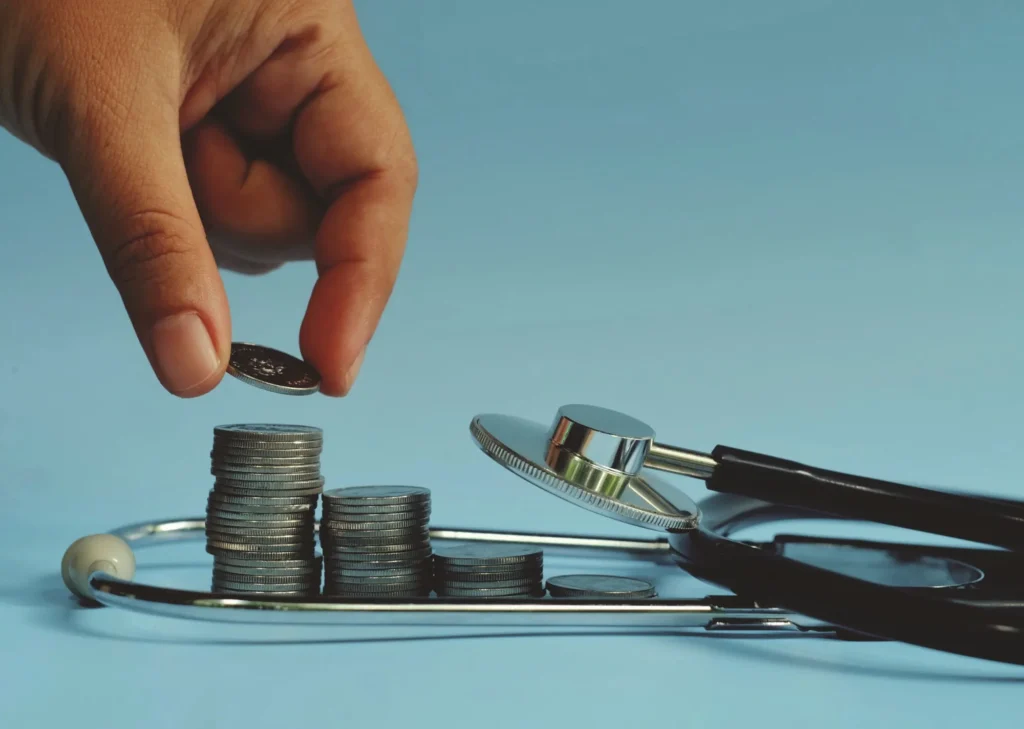While medical studies and internships for medical interns are known for their intensity and the pressure they put on students, the reality behind them is much darker. Stress, burnout, suicidal thoughts: the daily lives of medical students and interns are seriously deteriorating. A recent survey* initiated by organizations and associations representing medical interns and students, conducted among more than 80,000 future caregivers, reveals an alarming reality in a French health system already weakened by a systemic crisis accentuated by the health crisis .

A worrying observation is that students in distress
The figures are alarming: more than one in two medical students suffer from anxiety, while one in four experiences severe depressive episodes. Worse still, 21% of those surveyed report having had suicidal thoughts, and 66% of externs and interns show signs of burnout.
This deterioration remains fundamentally linked to working conditions. Between exhausting hospital internships, emotional demands, and institutional violence, many young doctors report a loss of hope. Healthcare facilities, as well as higher education institutions, must make students’ mental health a top priority.
Persistent and violence
Another reality also emerged from this survey: violence in hospitals and universities. Nearly 22% of students have experienced harassment, and 6% report serious assaults. These figures highlight deep-seated unrest within educational and professional structures .
Ender-based and violence further exacerbate the emotional suffering of students and contribute to a climate of deteriorating mental health. Fear of speaking out and reporting such abuse, often linked to threats of professional repercussions, further exacerbates the situation and reinforces the isolation of victims.
The financial precariousness of students
In addition to the violence and exhaustion caused by long working hours, financial insecurity is a concern. The survey reveals that many medical students struggle to make ends meet, particularly during internships where pay is insufficient or nonexistent. These difficulties, coupled wwith often-neglected healthneeds, worsen their psychological state. A graduate student intern testifies: “I don’t have enough financial resources, so I need to work on the side. I’m paid the minimum wage per hour in my student job, so I sometimes have to add overtime to make ends meet. All of this impacts the energy I have left to study.” A medical student testifies: “I don’t have enough financial resources, so I need to work on the side. I’m paid the minimum wage per hour in my student job, so I sometimes have to add overtime to make ends meet. All of this impacts the energy I have left to study.”
The impact of sleep deprivation on the mental health of medical students
Chronic sleep deprivation is another aggravating factor for medical students. Extended shifts and irregular schedules disrupt their circadian rhythm, leading to accumulated fatigue and sleep disturbances. This sleep deprivation severely impairs their ability to concentrate, increases anxiety, and increases the risk of depression.
The emotional exhaustion caused by work overload and increased responsibilities, coupled with a precarious financial situation, creates a climate of discouragement. Faced with this constant pressure, 10% of students consider dropping out of their studies every day. This situation jeopardizes the next generation of medical professionals and calls for an urgent overhaul of the healthcare system.
Social isolation a vicious circle
The rigor of medical school can also exacerbate students’ social isolation. Between lectures, revision, and internships, they have little time to maintain strong social relationships. This isolation can reinforce feelings of exhaustion and discouragement, creating a vicious cycle that is difficult to break.
Despite this, too few of you seem to open up about your unhappiness. Often, just like your older colleagues, you tend to neglect your health. Most of the time, this is due to a lack of time, but also undoubtedly due to a reluctance to discuss your difficulties or ask for help. However, many programs exist to support students in distress, in universities and with student organizations in particular.
Towards concrete solutions
Faced with this alarming observation, Isni, Isnar, and Anemf propose several solutions to protect the mental health of medical students and interns:
1- Respect the legal framework of working hours
Respect legal time limits and reduce excessive on-call hours. By ensuring a better work-life balance, medical students could better manage pressure and maintain their mental health.
2- Train supervisors in psychosocial issues
Hospital supervisors must be trained in psychosocial issues and the prevention of gender-based violence. This training would make it easier to detect signs of distress among students and provide them with the support they need.
3- Promote psychological support systems
Listening and support structures must be made more accessible so that those who feel they are in difficulty can call on them freely and without guilt.
Peer relationships also play a vital role in maintaining mental health. Creating support groups or listening structures among medical students could break the isolation felt by many. These discussion spaces, led by trained students or supervised by professionals, would allow for the sharing of experiences and advice in a supportive environment. In addition, initiatives such as regular social events or wellness days organized in faculties could strengthen connections and provide a welcome escape from the pressures of study.
The mental health of medical students a public health issue
The mental health of future physicians remains a major issue for the future of our healthcare system. If nothing is done to improve the working conditions of medical students, there is a risk that more and more young doctors will abandon their profession, further exacerbating the shortage of caregivers in hospitals. Taking care of your well-being is not only essential for them but also for the quality of future care your patients will receive.
This is also why Groupe Pasteur Mutualité offers interns a life insurance policy to maintain their income (including on-call and on-call duty) in the event of work stoppage, without medical selection . This allows you to be protected and not be excluded, even if you have experienced a depressive episode, for example, during your studies .



